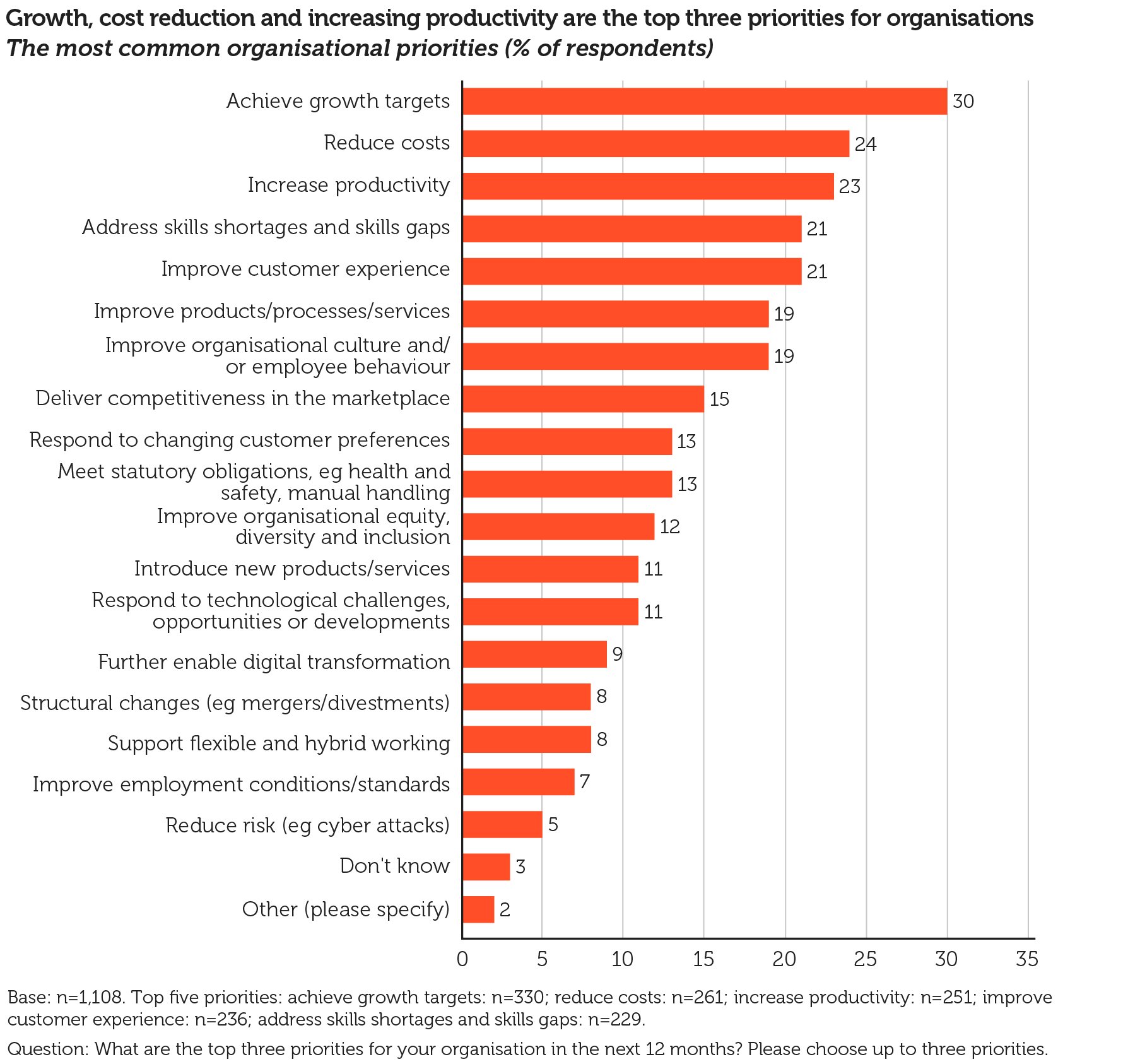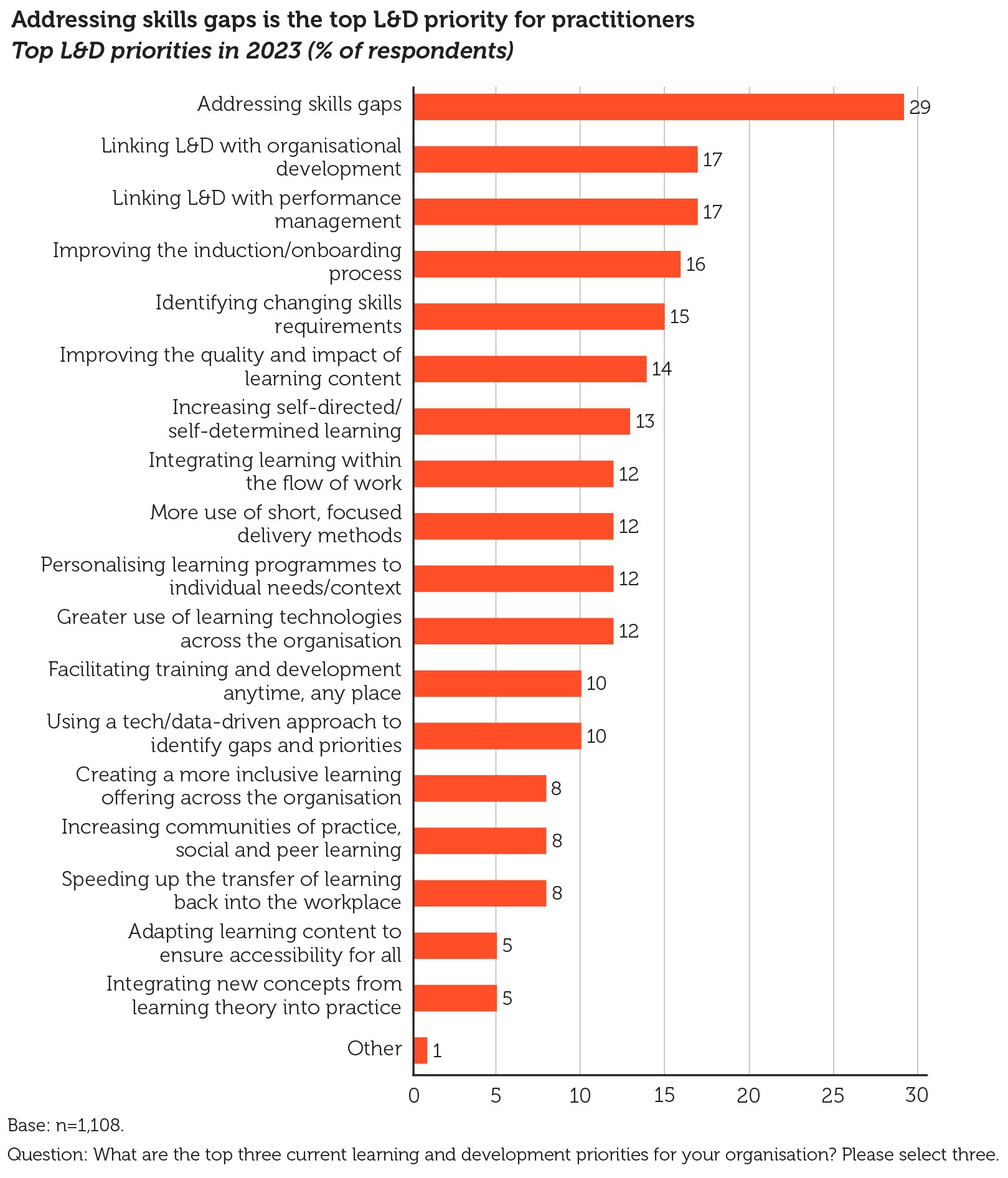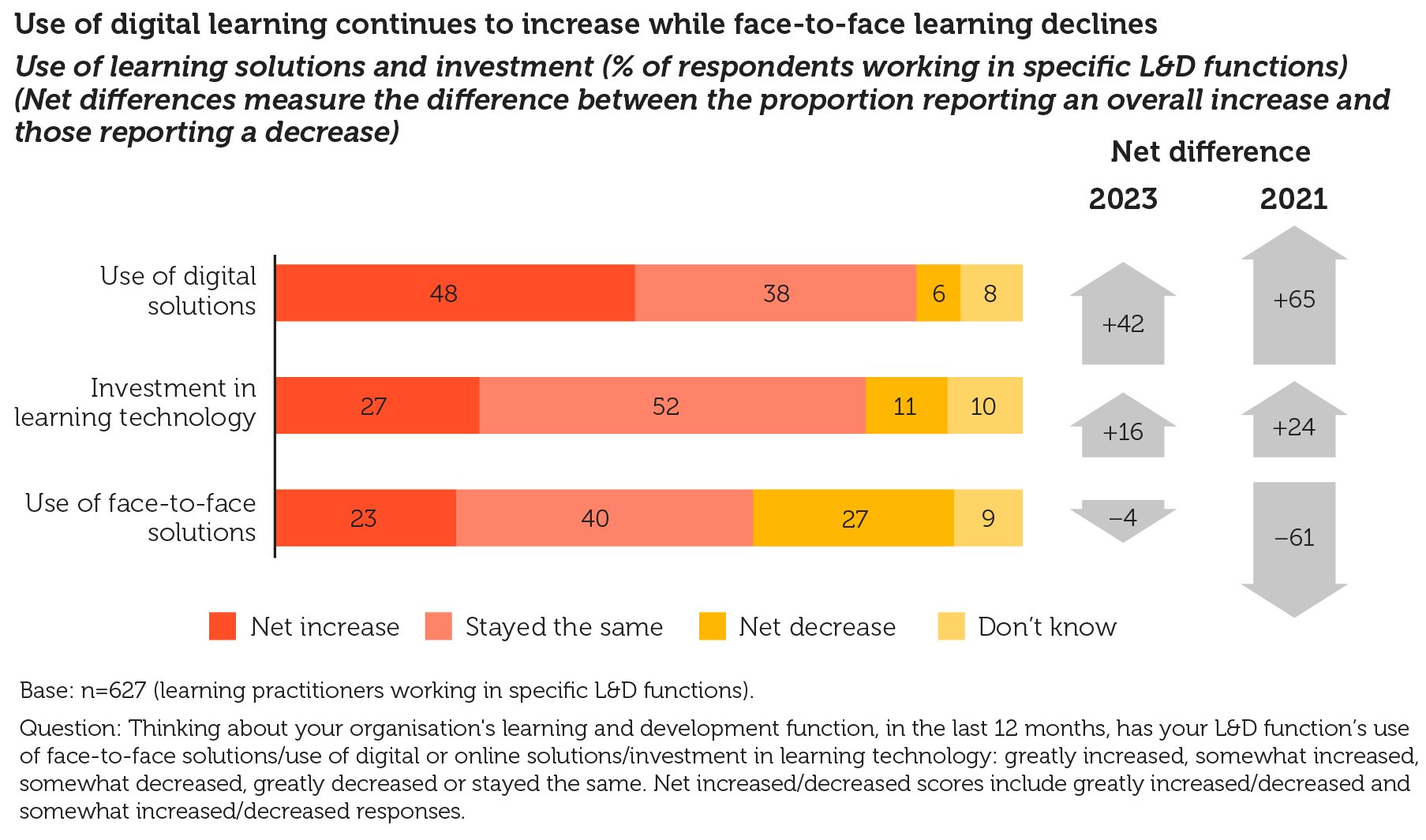How L&D can create value: Focusing on skills development
We discuss how L&D teams can create value and impact and improve performance through focusing on skills development

We discuss how L&D teams can create value and impact and improve performance through focusing on skills development

The CIPD’s Learning at Work research highlighted that in today’s dynamic organisational landscape, skills are a key focus for development. This is echoed in the World Economic Forum’s Future of Jobs report [1] and McKinsey’s The State of Organizations 2023: Ten Shifts Transforming Organizations.[2] These studies call out the pivotal role of investing in skills to drive performance, futureproof the workforce, strengthen organisational resilience, and shape the nature of work.
In this article, Andy Lancaster, Chief Learning Officer and Consultant, identifies the key drivers, considerations and presenting opportunities to increase the focus on creating an effective skills development strategy.
The CIPD’s Learning at Work 2023 report revealed learning practitioners ranked skills shortages in the top four organisational development priorities, trailing only concerns about growth, cost reduction, and productivity. Notably, 21% identified this focus, a significant increase from 15% in the Learning and Skills at Work 2021 survey, reflecting a growing urgency to address skills challenges in today’s workplace.

When L&D practitioners were asked about their personal work priorities, addressing skills gaps was the top focus.

This priority was also present in the CIPD’s Effective Workforce Reporting report, where 42% of leaders and 47% of HR leaders identified skills and labour shortages as a key challenge.
Wider research highlights organisational factors driving the increasing skills focus including:
Skills development also has a significant impact on an individual employee’s career prospects with the Essential skills tracker 2023 finding [3]:
So, a skills focus can reduce organisational costs and losses, boost organisational resilience, improve targeted recruitment, increase retention, drive performance, and improve opportunities for employee growth, development and career prospects.
A key challenge in adopting a skills-based strategy is the common confusion between skills and competencies, terms often used interchangeably. The essential differences are outlined below:
It’s important for organisations to know when to focus on competencies or skills.
Competency development is most appropriate for:
Skills development is paramount for:
While competency frameworks can align individual and organisational performance, they often fail to deliver impact by being too generic, complex, difficult to measure, and reactive. A skills-based approach tends to be more targeted, measurable, and adaptive, driving speedier performance improvements.
A key hurdle in implementing a skills-based approach is defining the essential skills needed across the organisation or for specific roles, given the numerous and extensive frameworks available. [1] [3] [5] [9] [10]
In approaching this task, it may help to consider the work of the Essential Skills Taskforce, where the CIPD played a key role in developing a research-based framework of essential skills for education, work, and life. These skills include listening, speaking, problem-solving, creativity, staying positive, aiming high, leadership, and teamwork. [11]
In defining essential skills in a given context, it is important to consider:
Historically, face-to-face learning was the significant component of many organisations' development delivery methods.
Learning at work 2023 highlighted a significant -61 net decline in face-to-face learning and a +65 net increase in digital approaches, alongside a notable +24 net rise in technology investment; shifts based on pre-pandemic data. In 2023, whilst there was a slight net decline in the use of face-to-face (-4), there was a substantial net rise (+42) toward digital solutions.

This indicates that more organisations are offering flexible, accessible, and personalised learning, which is essential for effective skills development.
While organisations continue to use in-house programmes (43%) and external conferences and workshops (41%), there are notable increases in interventions that can be highly effective in skills development. For example, job rotation, secondment, and shadowing rose from 16% to 26% since the 2021 study, with peer collaboration rising from 30% to 36%, and apprenticeships from 30% to 35%.
Despite these shifts, only just over half (59%) of the respondents felt able to respond agilely to changing organisational skills needs.
For responsive skills development learning in the flow of work, a term coined by Josh Bersin and explored in the CIPD’s podcast is a necessity. Skills development is invariably most effective when delivered in the workplace and moment of need [12] through accessible interventions. [13]
Learning at Work 2023 notes the current or planned adoption of technology to assist such approaches although there is clearly room for greater ambition. For example, collaborative working (34% currently using and 9% planning to use), bitesize film and video (22% and 6%), job aids and performance support tools such as infographics and checklists (17% and 8%), podcasts and vlogs (15% and 6%), digitally supported coaching and mentoring (15% and 9%), mobile apps (12% and 7%), and curated content (3% and 4%).
Additionally, the report highlights the low adoption of emerging technologies like augmented and virtual reality (4% and 3% in use), and AI (5%although it must be noted that these statistics represent the state of play in 2023, and it is likely that experimentation with AI is increasing. These technologies offer excellent options for skills development, indicating key opportunities for exploration.
So, an effective skills development strategy requires an agile approach, with accessibility, flexibility, digital solutions, and a commitment to leveraging emerging technologies.
Skills development by nature should drive impact by focusing on practical performance improvements. Yet, Learning at Work 2023 shows a decline in leaders recognising L&D's impact on organisational priorities, dropping from 81% in 2021 to 67%. And, despite the skills emphasis, only 8% are prioritising learning transfer to the workplace.
What can we adopt from those who are successfully driving impact?
So, to boost the impact of skills strategies, it's essential to use diagnostic approaches like performance consulting. This involves partnering with your people to identify skills gaps and co-create targeted performance-enhancing initiatives, backed by a clear plan to track impact. The use of AI and data empowers opportunities to create personalised and targeted development.
Our 2023 survey report explores how learning professionals are responding to the changing world of work

Browse our A–Z catalogue of information, guidance and resources covering all aspects of people practice.
Discover our practice guidance and recommendations to tackle bullying and harassment in the workplace.

Understand what we mean by skills in the workplace, UK skill levels and the government’s skills policy.

Read our response to the call by the House of Lords Industry and Regulators Committee for evidence on skills policy

Recent data on employees' contrasting views on these contracts gives insight into how best to approach reforms.

Monthly round-up of changes in employment law in the UK

The Good Jobs Employment Rights Bill seeks to give new protections for those living and working in Northern Ireland

Charles Cotton, the CIPD’s senior adviser on pay and reward, explores a recent survey of employers to understand why they pay or don’t pay the real Living Wage and how this connects to UK Government plans to improve jobs and pay